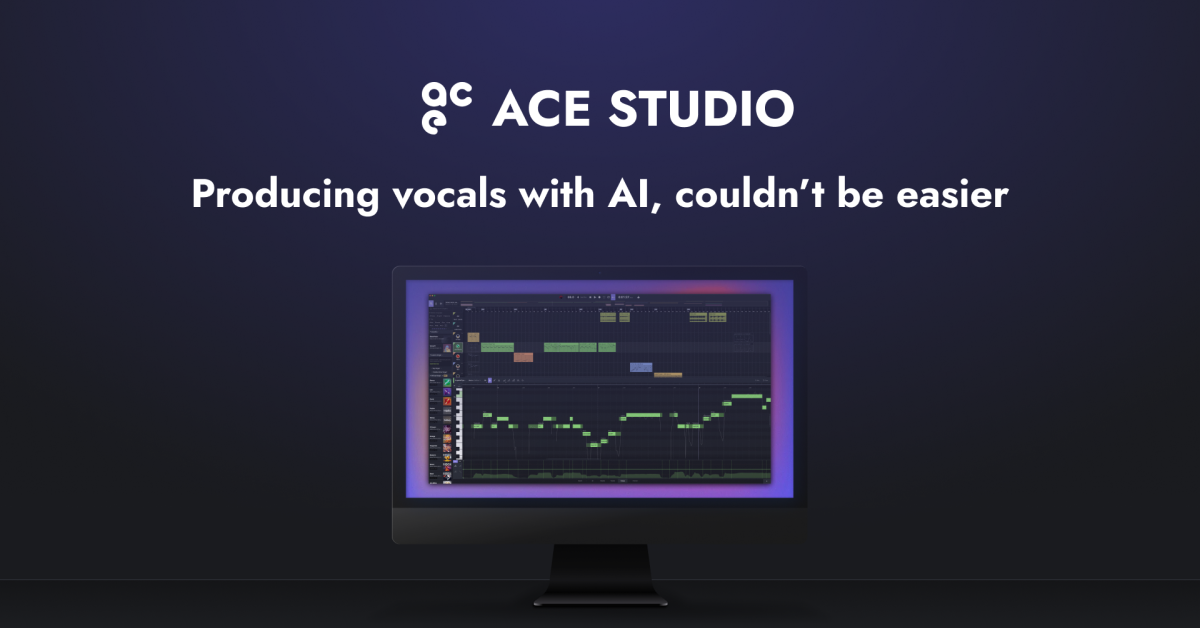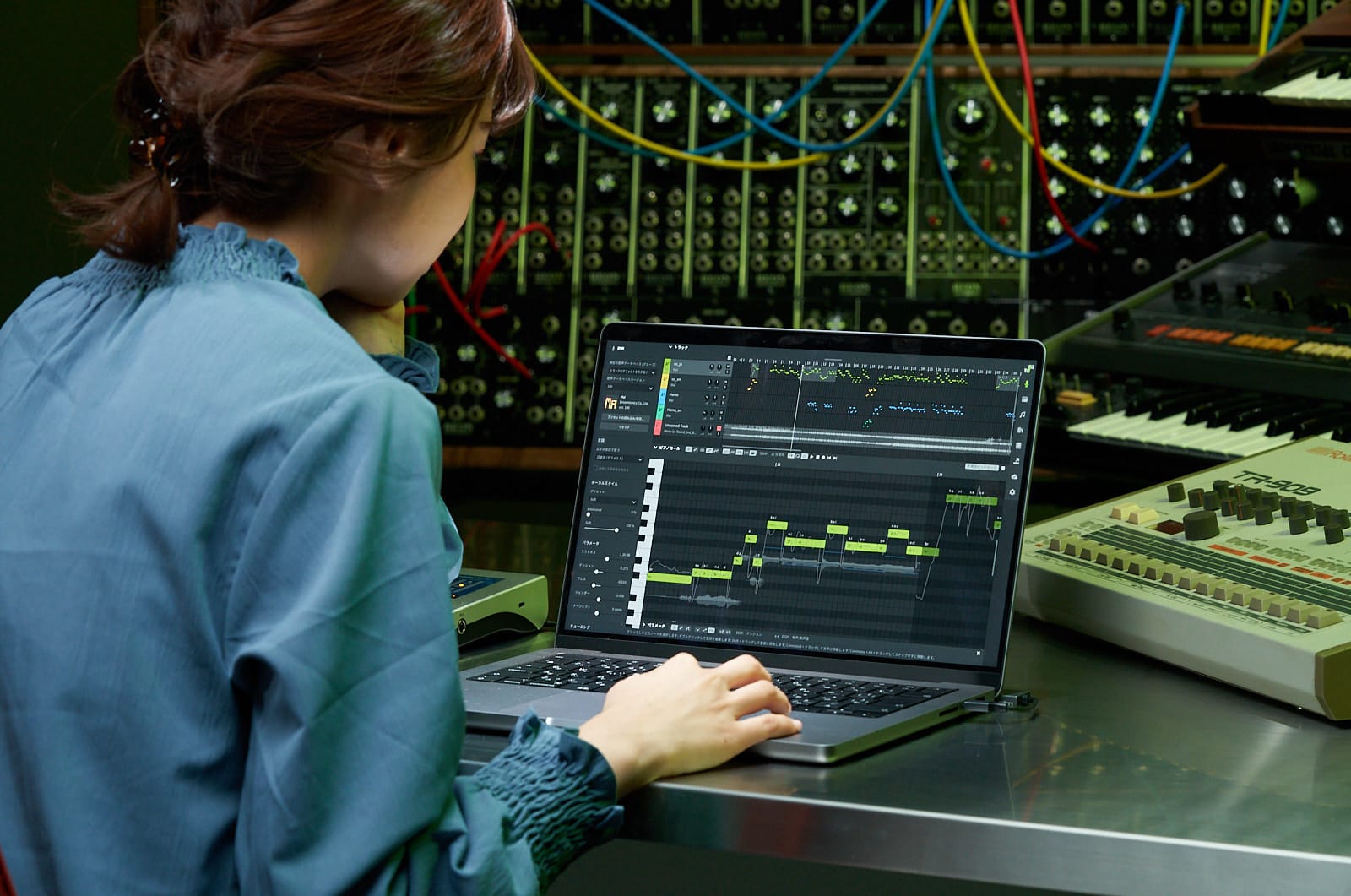How to get vocals with AI: SVS vs. RVC

Overview of AI Vocal Generation Technologies
In the realm of AI vocal generation, two prominent technologies stand out: Singing Voice Synthesis (SVS), exemplified by ACE Studio, and Retrieval-based Voice Conversion (RVC), such as that offered by Kits.AI. Each technology has its unique features and applications, making them suitable for different use cases in music production.
How SVS Works
SVS utilizes deep neural networks to synthesize singing voices from MIDI and lyrics.
- The system analyzes a large dataset of recorded singing samples to capture the acoustic characteristics of the voice.
- AI singing voice model can then generate new vocal performances based on input MIDI files and lyrics.
How RVC Works
RVC employs a different approach known as retrieval-based voice conversion. This technology focuses on transforming existing vocal recordings into new performances using AI.
- Clear recordings of the target singer's voice are provided to train the AI model.
- Once trained, users can convert their audio into songs using the AI-generated voices.
Top SVS AI music tools
ACE Studio and Synthesizer V are currently the most powerful SVS AI vocal generators.
ACE Studio
Overview
ACE Studio is a cloud-based DAW that focuses on singing voice synthesis (SVS) using deep neural networks. It allows users to create realistic vocal performances by manipulating MIDI and audio inputs.

Key Features
- Diverse AI Singers: ACE Studio offers dozens of pre-made AI singers, as well as a large number of voice library singers shared by users. Users can have a diverse selection of singers without the need to download separate data packs.
- VoiceMix: This feature allows users to blend multiple vocal models, creating unique vocal tones.
- Custom Voice Model: Users can upload their own voice data to create exclusive singing voice models.
- Editable Parameters: Offers manual adjustments for pitch and emotional expressiveness, enhancing the realism of generated vocals.
- Cross-Lingual Synthesis: Supports singing in multiple languages, including English, Japanese, and Mandarin Chinese.
Limitations
- Subscription-based model may deter some users who prefer one-time purchases.
- Due to cloud rendering, an internet connection is required to use it; it cannot be used offline.
Synthesizer V
Overview
Developed by Dreamtonics, Synthesizer V is a powerful singing synthesis software that combines an intuitive interface with advanced AI technology to generate realistic vocals.

Key Features
- Cross-Lingual Synthesis: Supports singing in multiple languages, including English, Japanese, and Mandarin Chinese.
- Vocal Modes: Offers various vocal modes that enhance expressiveness based on the selected voicebank.
- Pro and Basic Editions: The Pro edition includes advanced features like unlimited tracks and customizable pitch tuning.
- Vocoflex Plugin: A recent addition that allows for voice morphing and blending between different vocal samples.
Limitations
- Some users find the learning curve steep due to the complexity of features.
- Different voicebanks (AI singers) need to be purchased and installed separately.
Top RVC AI music tools
Kits AI and Voice.ai are currently very popular as RVC AI vocal generators.

Kits AI
Overview
Kits AI specializes in retrieval-based voice conversion (RVC), allowing users to transform existing vocal recordings into new performances using AI technology.
Key Features
- User-Friendly Interface: Simplifies the process of voice cloning and blending for users.
- Customization Options: Users can adjust settings like conversion strength and volume blend for tailored outputs.
- Free Basic Plan: Allows users to explore features without immediate financial commitment.
Limitations
- Primarily focused on converting existing recordings rather than generating new voices from scratch.
- May lack the depth of customization available in SVS platforms like ACE Studio or Synthesizer V.
Voice.ai
Overview
Voice.ai utilizes RVC technology to provide real-time voice conversion capabilities, allowing users to create new vocal performances from existing audio samples.
Key Features
- Real-Time Conversion: Enables instant transformation of audio recordings into new vocal outputs.
- Wide Range of Voices: Includes numerous pre-built voices, making it versatile for various applications.
- Free Access Model: Completely free to use, which is attractive for casual users and content creators.
- Emotional Range Enhancement: Users can provide feedback during conversion to enhance emotional expressiveness.
Limitations
- Focused more on conversion than synthesis; may not appeal to users looking for original voice creation.
- Limited customization compared to SVS platforms.
Conclusion
Choosing between SVS and RVC depends largely on your specific needs:
- If you are looking for a system that allows for deep customization of synthesized vocals from written music, SVS tools are ideal due to their comprehensive control over synthesized vocals with advanced features.
- Conversely, if you prefer transforming existing recordings with minimal setup, RVC may be more suitable due to their easy-to-use interfaces.
Both technologies represent significant advancements in AI vocal generation, enabling musicians and creators to explore new creative avenues.